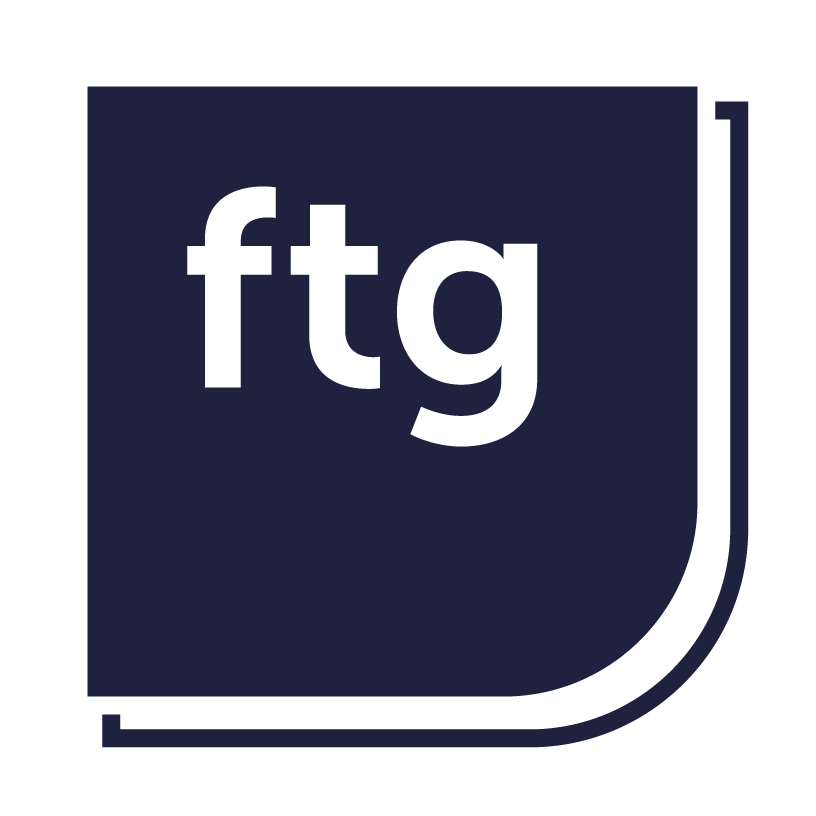Aim Notice 50
Introduction from the Chairman
All members of the board believe strongly in the value and importance of good corporate governance and in our accountability to all of Frenkel Topping’s stakeholders, including shareholders, staff, clients and suppliers. In the statement below, we explain our approach to governance, and how the board and its committees operate.
Changes to AIM rules on 30 March 2018 require AIM companies to apply a recognised corporate governance code by 28 September 2018.
The corporate governance framework which the group operates, including board leadership and effectiveness, board remuneration, and internal control is based upon practices which the board believes are proportional to the size, risks, complexity and operations of the business and is reflective of the group’s values. Of the two widely recognised formal codes, we have therefore decided to adhere to the Quoted Companies Alliance’s (QCA) Corporate Governance Code for small and mid-size quoted companies (revised in April 2018 to meet the new requirements of AIM Rule 26). The QCA Code is constructed around ten broad principles and a set of disclosures. The QCA has stated what it considers to be appropriate arrangements for growing companies and asks companies to provide an explanation about how they are meeting the principles through the prescribed disclosures. We have considered how we apply each principle to the extent that the board judges these to be appropriate in the circumstances, and below we provide an explanation of the approach taken in relation to each.
The board considers that it does not depart from any of the principles of the QCA Code. The Board believes that it complies with all ten principles of the QCA code.
Tim Linacre
Non-Executive Chairman
Board composition and compliance
The QCA Code requires that the boards of AIM companies have an appropriate balance between executive and non-executive directors of which at least two should be independent. The board is currently made up of three executive and four non-executive directors.
Board evaluation
For many years we have supported the QCA Code’s principle to review regularly the effectiveness of the board’s performance as a unit, as well as that of its committees and individual directors.
Shareholder engagement
The Chairman, CEO and CFO have made significant efforts to renew and continue effective engagement with both institutional and private shareholders in conjunction with the announcement of our annual and interim results, meeting both existing and potential investors. The board has ultimate responsibility for reviewing and approving the Annual Report and Accounts and it has considered and endorsed the arrangements for their preparation, under the guidance of its audit committee. The directors confirm that the Annual Report and Accounts, taken as a whole, is fair, balanced and understandable and provides the information necessary for shareholders to assess the group’s position and performance, business model and strategy.
The following paragraphs set out Frenkel Topping’s compliance with the ten principles of the QCA Code.
Principle 1: Establish a strategy and business model which promote long-term value for shareholders
The Board has been executing a buy-and-build strategy bringing complementary services into the Group, creating multiple touch points in the Personal Injury and Clinical Negligence space providing the opportunity to grow Assets Under Management and deliver recurring revenues.
Our reputation in this arena is allowing us to extend our offering to new clients through the provision of a growing number of services leading towards providing independent financial advisory services and managing clients’ assets on a discretionary basis. We believe that the quality of the service we provide and our reputation with our clients and their advisors, plus the wider range of services we can provide will contribute to the growth of in sales revenue and assets under management and the operational gearing we will enjoy as the business grows will accelerate the growth in shareholder value.
We expect that the new services added will contribute to the growth in revenues and AUM and that the operational gearing within the organisation will result in improving EBITDA margins and the value of the Group. This will enable us to deliver sustainable shareholder value.
Principle 2: Seek to understand and meet shareholder needs and expectations
Responsibility for investor relations rests with the CEO, supported by the CFO, whilst giving shareholders access to the Chairman if and when requested. These meetings are organised by the Group’s Nomad, finnCap, at or close to results announcements or when requested, or directly with the company as requested by investors. The group is committed to communicating openly with its shareholders to ensure that its strategy and performance are clearly understood. We communicate with shareholders through the Annual Report and Accounts, full-year and half-year announcements, trading updates and the annual general meeting (AGM), and we encourage shareholders’ participation in face-to-face meetings. A range of corporate information (including all Frenkel Topping announcements) is also available to shareholders, investors and the public on our website.
Private shareholders: The AGM is the principal forum for dialogue with private shareholders, and we encourage all shareholders to attend and participate. The Notice of Meeting is sent to shareholders at least 20 days before the meeting. The chairman of the board and all committees, together with all other directors whenever possible, attend the AGM and are available to answer questions raised by shareholders. Shareholders vote on each resolution, by way of a poll.
Institutional shareholders: The directors actively seek to build a mutual understanding of objectives with institutional shareholders. Our CEO and CFO make presentations to institutional shareholders and analysts immediately following the release of the full-year and half-year results. We communicate with institutional investors frequently through a combination of formal meetings, and informal briefings with management. The majority of meetings with shareholders and potential investors are arranged by the broking team within the group’s nominated advisor. Following meetings, the broker provides anonymised feedback to the board from all fund managers met, from which sentiments, expectations and intentions may be gleaned. In addition, the broker reviews analysts’ notes to achieve a wider understanding of investors’ views. This information is considered by the board and has contributed to the preparation of the group’s investor relations strategy.
Principle 3: Take into account wider stakeholder and social responsibilities and their implications for long-term success
| Stakeholder | Reason for engagement | How we engage |
|---|---|---|
Staff – our ability to provide a professional service depends on having professional, intelligent, talented and motivated staff. | Good two-way communication with staff is a key requirement for high levels of engagement, fostering a culture of innovation. |
|
Clients and their advisors – our success and competitive advantage is dependent upon fulfilling the expectations and requirements of our Clients and their advisors. | Understanding current and emerging requirements of current and potential Clients enables us to develop new and enhanced products and services. |
|
Suppliers – three examples of key groups of suppliers who help to support our business
| To deliver the services that we provide to our Clients. |
|
Shareholders – as a public company we must provide transparent, easy-to-understand and balanced information to ensure support and confidence. | Meeting regulatory requirements and understanding shareholder sentiments on the business, its prospects and performance of management. |
|
Regulatory bodies – the services we provide must meet certain requirements. | We are regulated by a number of different parties across different areas of the Group. For example:
|
|
Communities - the advice we provide supports individuals who have been injured in an incident and helps them pursue compensation when they are entitled to compensation. In other cases, an injured party will receive no settlement. | The Frenkel Topping Charitable Foundation aims to provide some support to injured parties where they receive no compensation. | Activities to support fundraising for Frenkel Topping Charitable Foundation. |
Principle 4: Embed effective risk management, considering both opportunities and threats, throughout the organisation
Within the scope of the annual audit, specific financial risks are evaluated in detail, including in relation to liquidity and credit control. Managers and staff who may be aware of price sensitive information are required to seek approval from the CFO if they, or their families, plan to trade in the group’s equities.
Operational compliance is managed by the Group’s internal Compliance department with support from third party experts.
Principle 5: Maintain the board as a well-functioning, balanced team led by the chair
The members of the board have a collective responsibility and legal obligation to promote the interests of the group and are collectively responsible for defining corporate governance arrangements. Ultimate responsibility for the quality of, and approach to, corporate governance lies with the chair of the board. The board consists of seven directors of which three are executive and four are non-executives (Tim Linacre, Christopher Mills, Rt. Hon. Mark Field and Zoe Holland).
The board is supported by two committees: audit and remuneration. The board does not consider that it is of a size at present to require a separate nominations committee, and all members of the board are involved in the appointment of new directors.
There is currently two female and five male directors. The board remains confident both that the opportunities in the Company are not excluded or limited by any diversity issues (including gender) and that the board nevertheless contains the necessary mix of experience, skills and other personal qualities and capabilities necessary to deliver its strategy. Non-executive directors are required to attend 4 board and board committee meetings per year (in Salford and London) and to be available at other times as required for face-to-face and telephone meetings with the executive team and investors. Meetings held during 2022 and the attendance of directors is summarised below:
| Board meetings* | Audit Committee | Remuneration Committee | ||||
| Possible | Attended | Possible | Attended | Possible | Attended | |
| Executive directors | ||||||
| Richard Fraser | 6 | 6 | 2 | 2 | - | - |
| Mark Holt | 6 | 6 | – | – | – | – |
| Elaine Cullen-Grant | 6 | 6 | – | – | – | – |
| Non-executive directors | ||||||
| Tim Linacre | 6 | 6 | 2 | 2 | 1 | 1 |
| Christopher Mills | 6 | 6 | 2 | 2 | 1 | 1 |
| Zoe Holland | 6 | 5 | 2 | – | 1 | 1 |
| Rt Hon Mark Field | 6 | 6 | 2 | – | 1 | 1 |
* There was one further meeting called and held by conference call for the sole purpose of approving the interim results announcement
The board has a schedule of regular business, financial and operational matters, and each board committee has compiled a schedule of work to ensure that all areas for which the board has responsibility are addressed and reviewed during the course of the year. The chairman is responsible for ensuring that, to inform decision-making, directors receive accurate, sufficient and timely information. The company secretary compiles the board and committee papers which are circulated to directors prior to meetings. The company secretary provides minutes of each meeting and every director is aware of the right to have any concerns minuted and to seek independent advice at the group’s expense where appropriate.
Principle 6: Ensure that between them the directors have the necessary up-to-date experience, skills and capabilities
Four members of the board bring relevant sector experience in independent financial advice, two have at least twenty years of public markets experience, two members are chartered accountants and two are trained solicitors. The board believes that its blend of relevant experience, skills and personal qualities and capabilities is sufficient to enable it to successfully execute its strategy. Directors attend seminars and other regulatory and trade events to ensure that their knowledge remains current.
Tim Linacre, Non-Executive Chairman
Term of office: Appointed Non-Executive Chairman on the 17th June 2020, joined as Non-Executive Director on 19 June 2018; member of the Audit Committee and member of the Remuneration Committee.
Background and suitability for the role: Tim is a chartered accountant and an experienced City practitioner. After qualifying with Deloitte Haskins and Sells he spent 5 years with Hoare Govett before moving to Panmure Gordon in 1992, working at that firm for 20 years including 8 years as CEO. Tim is currently Chief Executive at Instinctif Partners, a leading business communications firm.
Current external appointments: Instincif Partners
Time commitment: one to two days per month.
Christopher Mills, Non-Executive Director
Term of office: Joined as Non-Executive Director on 20 May 2020; member of the Audit Committee and member of the Remuneration Committee.
Background and suitability for the role: Christopher is currently the Chief Executive Officer and Investment Manager of North Atlantic Smaller Companies Investment Trust plc, a UK listed investment trust, and a Non-Executive Director of several companies including MJ Gleeson plc, EKF Diagnostics Holdings plc and Augean plc. Mr. Mills was appointed a Non-Executive Director of Harwood Wealth Management Group plc (“Harwood Wealth”) in 2016, an AIM listed financial planning and discretionary wealth management firm business which he helped to build. Harwood Wealth was acquired by Hurst Point, a company formed by funds managed by US private equity firm Carlyle Group for GBP91m earlier this year.
Current external appointments: North Atlantic Small Companies Investment Trust and other companies as a Non-Executive Director
Time commitment: one to two days per month.
Rt. Hon, Mark Field, Non-Executive Director
Term of office: Joined as Non-Executive Director on 26 January 2021; chair of the Audit Committee and member of the Remuneration Committee.
Background and suitability for the role: Mark is a former MP and FCO Minister who, during his tenure in UK Parliament, represented the prestigious central London constituency of the Cities of London and Westminster. Mr Field held this position for over 18 years during which time he also served as the Minister for State at the Foreign and Commonwealth Office and as vice-chair of the Conservative Party. Prior to this, Mark practised as a corporate lawyer at Freshfields and also set up, ran, and sold Kellyfield Consulting, a specialist legal recruitment company. Since leaving Parliament, Mark has embarked on a portfolio career which includes senior advisory roles to multiple public and private sector companies. Most recently, Mark has been appointed as Chairman of Capital International Bank, a new digital bank based in the Isle of Man.
Current external appointments: M C Field Consulting Limited and Capital International Bank, Isle of Man
Time commitment: one to two days per month.
Zoe Holland, Non-Executive Director
Term of office: Joined as Non-Executive Director on 22 February 2021; chair of the Remuneration Committee and member of the Audit Committee.
Background and suitability for the role: Zoe has over 25 years’ legal and business experience and is currently managing director of ZebraLC, a multi award winning adviser to the UK legal sector, having founded the business in 2012. Zoe is recognised as a trusted advisor to law firms, banks, funders, ATE insurers, accountants and private investors looking for advice upon WIP valuation, legal sector market knowledge, receivables risks, governance, financial and operational risk management including restructuring and turnaround. She has also advised in a number of the legal sector’s highest profile PI and clinical negligence M&A deals, advising acquisitive law firms and private equity investors.
Prior to ZebraLC Zoe served as Interim CEO of AMS LLP originally contracted as a consultant. She began her legal career at specialist clinical negligence firm Alexander Harris LLP and in her early career assisted in the Shipman Inquiry and the Myodil Litigation against GLAXO. She went on to head a team managing catastrophic injury and mismanaged birth claims. She them moved in in the same role at Irwin Mitchell LLP. Zoe is a trained solicitor having trained at the University of Manchester and the College of Law.
Current external appointments: ZebraLC Limited, Jackson Lees Group Limited, Chair of Silk Elephant CIO
Time commitment: one to two days per month.
Richard Fraser, CEO
Term of office: Richard joined Frenkel Topping Ltd in 1991, was appointed at Managing Director in 1999 and appointed to the board of Frenkel Topping Group Plc in 2001.
Background and suitability for the role: Richard joined Frenkel Topping Ltd (trading subsidiary of Frenkel Topping Group Plc) in 1991 after gaining experience in financial services whilst working at Lloyds Bank, Bradford and Bingley Building Society and Scottish Widows. Richard has been fully involved in the development of both structured settlements and Frenkel Topping Ltd, becoming Managing Director in 2000. He played a key role in the appointment of Frenkel Topping Ltd as an alternative investment broker to the Court of Protection and Richard has also been a regular speaker at financial services conferences across the UK.
Current external appointments: None
Time commitment: Full time.
Mark Holt, Commercial Director
Term of office: Originally engaged as a senior consultant in 2011, Mark was appointed Commercial Director and joined the board on 1 September 2016.
Background and suitability for the role: Since graduating in 1996, Mark has worked in the Financial Services Industry, working for Nelson’s Money Managers before joining Barclays Financial Management in 1998. He was Managing Director of his own IFA firm which he ran successfully before joining Frenkel Topping. Mark has written a response to The Ministry of Justice on the Discount Rate Consultation and regularly spends time in Chambers delivering training seminars to Counsel and Solicitors on the discount rates used to quantify personal injury and clinical negligence settlements and periodical payments. He is authorised and regulated by the Financial Conduct Authority and currently holds the ‘Statement of Professional Standing’ as issued by the London Institute of Banking and Finance.
Current external appointments: None
Time commitment: Full time.
Elaine Cullen-Grant, Chief Financial Officer and company secretary
Term of office: Elaine joined Frenkel Topping in 2009 as Group Financial Controller and was appointed to the board as CFO on 1 March 2020.
Background and suitability for the role: Elaine qualified as a Chartered Management Accountant in 2010 and, prior to joining Frenkel Topping, was a Financial Reporting Accountant at Carillion Utility Services and worked in various finance functions at Bupa.
Current external appointments: None
Time commitment: Full time.
Principle 7: Evaluate board performance based on clear and relevant objectives, seeking continuous improvement.
The Chairman is responsible for the board evaluation process which involves a 360-degree review in which each gathers feedback from a number of sources, including peers, direct reports, more senior colleagues. The review considers effectiveness in a number of areas including general supervision and oversight, business risks and trends, succession and related matters, communications, ethics and compliance, corporate governance and individual contribution.
Principle 8: Promote a corporate culture that is based on ethical values and behaviours.
Our long-term growth is underpinned by our five core values, they are:
- We place our clients first. The criteria applied in recruiting our consultants and other front-line staff include both technical capabilities and their people skills because being able to relate to our clients is a key responsibility of all members of our team. Putting ourselves in the shoes of our clients to understand their current and future needs helps us to relate to the people for whom we are providing advice and investing their assets.
- We have an enduring positive attitude that stems from being self-motivated, adaptable and agile and feeling fully empowered to make a difference, speaking out with ideas and suggestions to make things better.
- We are team players who recognise that Frenkel Topping is a company worth much more than the sum of its parts, we are passionate about communicating with colleagues and our clients and their advisors.
- We are committed to improving the service we provide by understanding the needs of our clients and their advisors and by exploiting the information technology that is available to us.
- We respect one another and are courteous, honest and straightforward in all our dealings, we honour diversity, individuality and personal differences, and are committed to conducting our business with the highest personal, professional and ethical standards.
The culture of the group is characterised by these values which are communicated regularly to staff through internal communications and forums. The board believes that a culture that is based on the five core values is a competitive advantage and consistent with fulfilment of the group’s mission and execution of its strategy. The culture is monitored through the use of a widely-used satisfaction and engagement survey that is operated on an annual basis and to which all permanent staff are invited to contribute. The board reviews the findings of the survey and determines whether any action is required.
Principle 9: Maintain governance structures and processes that are fit for purpose and support good decision-making by the board
The board provides strategic leadership for the group and operates within the scope of a robust corporate governance framework. Its purpose is to ensure the delivery of long-term shareholder value, which involves setting the culture, values and practices that operate throughout the business, and defining the strategic goals that the group implements in its business plans. The board defines a series of matters reserved for its decision and has approved terms of reference for its audit and remuneration committees to which certain responsibilities are delegated. The chair of each committee reports to the board on the activities of that committee.
The Audit Committee monitors the integrity of financial statements, oversees risk management and control, monitors the effectiveness of the internal audit function and reviews external auditor independence.
The Remuneration Committee sets and reviews the compensation of executive directors including the setting of targets and performance frameworks for cash- and share-based awards.
The Executive board, consisting of the executive directors, operates as a management committee, chaired by the CEO, which reviews operational matters and performance of the business, and is responsible for significant management decisions while delegating other operational matters to individual managers within the business.
The Chairman has overall responsibility for corporate governance and in promoting high standards throughout the group. He leads and chairs the board, ensuring that committees are properly structured and operate with appropriate terms of reference, ensures that performance of individual directors, the board and its committees are reviewed on a regular basis, leads in the development of strategy and setting objectives, and oversees communication between the group and its shareholders.
The CEO provides coherent leadership and management of the group, leads the development of objectives, strategies and performance standards as agreed by the board, monitors, reviews and manages key risks and strategies with the board, ensures that the assets of the group are maintained and safeguarded, leads on investor relations activities to ensure communications and the group’s standing with shareholders and financial institutions is maintained, and ensures that the board is aware of the views and opinions of employees on relevant matters.
The Executive Directors are responsible for implementing and delivering the strategy and operational decisions agreed by the board, making operational and financial decisions required in the day-to-day operation of the group, providing executive leadership to managers, championing the group’s core values and promoting talent management.
The Independent Non-Executive Directors contribute independent thinking and judgement through the application of their external experience and knowledge, scrutinise the performance of management, provide constructive challenge to the executive directors and ensure that the group is operating within the governance and risk framework approved by the board.
The CFO is responsible for providing clear and timely information flow to the board and its committees and supports the board on matters of corporate governance and risk.
The matters reserved for the board are:
- Setting long-term objectives and commercial strategy.
- Approving annual operating and capital expenditure budgets.
- Changing the share capital or corporate structure of the group.
- Approving half-year and full-year results and reports.
- Approving dividend policy and the declaration of dividends.
- Approving major investments, disposals, capital projects or contracts.
- Approving resolutions to be put to general meetings of shareholders and the associated documents or circulars.
- Approving changes to the board structure.
The board has approved the adoption of the QCA Code as its governance framework against which this statement has been prepared and will monitor the suitability of this code on an annual basis and revise its governance framework as appropriate as the group evolves.
Principle 10: Communicate how the company is governed and is performing by maintaining a dialogue with shareholders and other relevant stakeholders
In addition to the investor relations activities described above, the following audit and remuneration committee reports are provided. The votes at the Group’s most recent AGM held on 13th June 2023 were cast as follows:
| Votes For | Votes Against | Votes Abstained | ||
| Ordinary Resolution 1 | To receive the audited accounts and the auditors’ and directors’ reports for the year ended 31 December 2022. | 80,780,180 | - | - |
| Ordinary Resolution 2 | To declare a final dividend of 1.02 pence per ordinary share for the financial year ended 31 December 2021 to be paid on 21 October 2022 to the holders of ordinary shares on the register of members at the close of business on 7 October 2022. | 80,780,180 | - | - |
| Ordinary Resolution 3 | To re-elect Tim Linacre as a director | 80,780,146 | 34 | - |
| Ordinary Resolution 4 | To re-elect Richard Fraser as a director | 75,480,848 | 131,830 | 5,167,502 |
| Ordinary Resolution 5 | To re-elect Mark Holt as a director | 80,780,146 | 34 | - |
| Ordinary Resolution 6 | To re-elect Elaine Cullen Grant as a director. | 80,780,146 | 34 | - |
| Ordinary Resolution 7 | To re-elect Christopher Mills as a director | 75,906,890 | 4,873,290 | - |
| Ordinary Resolution 8 | To re-elect Mark Christopher Field as a director. | 80,780,146 | 34 | - |
| Ordinary Resolution 9 | To re-elect Zoe Holland as a director. | 80,648,350 | 131,830 | - |
| Ordinary Resolution 10 | To re-appoint Haysmacintyre LLP as the Company's auditors | 80,780,180 | - | - |
| Ordinary Resolution 11 | To authorise the directors to determine the auditors' remuneration | 80,780,146 | 34 | - |
| Ordinary Resolution 12 | To authorise the directors to allot shares up to the specific limit. | 77,442,580 | 3,337,600 | - |
| Special Resolution 13 | To empower the directors to issue shares for cash free from statutory pre-emption rights up to the specified limit | 77,442,780 | 3,339,400 | - |
| Special Resolution 14 | To empower the directors to issue shares for cash free from statutory pre-emption rights up to the specified limit in connection with acquisitions or capital investments. | 77,442,780 | - | |
| Special Resolution 15 | To authorise the Company to purchase its own shares up to the specified limit. | 74,825,869 | - | 5,954,063 |
Audit Committee Report
During 2022, the Audit Committee continued to focus on the effectiveness of the controls throughout the group. The Audit Committee consisted of Mark Field (chair), Tim Linacre, Richard Fraser, Christopher Mills and Zoe Holland. The committee met once to review the 2021 Audit Findings Report with the external auditor and second time without the external auditor. The external auditor meets with the CFO on a regular basis to be briefed on developments in the Group and with the CEO as an when necessary. Consideration was given to the auditor’s pre- and post-audit reports and these provide opportunities to review the accounting policies, internal control and the financial information contained in both the annual and interim reports.
The 2023 Audit Committee will continue the same focus and consists of Mark Field, chair, Tim Linacre, Richard Fraser, Christopher Mills and Zoe Holland.
Remuneration Committee Report
The remit of the Remuneration Committee is to determine the framework, policy and level of remuneration, and to make recommendations to the board on the remuneration of executive directors. In addition, the committee oversees the creation and implementation of all-employee share plans. Through 2022, the Remuneration Committee consisted of Zoe Holland (chair), Tim Linacre, Mark Field and Christopher Mills. The committee met once. In setting remuneration packages the committee ensured that individual compensation levels, and total board compensation, were comparable with those of other AIM-listed companies.
The 2023 Remuneration Committee will consist of Zoe Holland, chair, Tim Linacre, Mark Field and Christopher Mills.
The Group’s Financial Statements, Interim Results and Notice of the Annual General Meeting can be found on the Group’s website or through the following links:
https://www.frenkeltoppinggroup.co.uk/corporate-governance/corporate-announcements/
To download Adobe Acrobat free of charge, click here.











